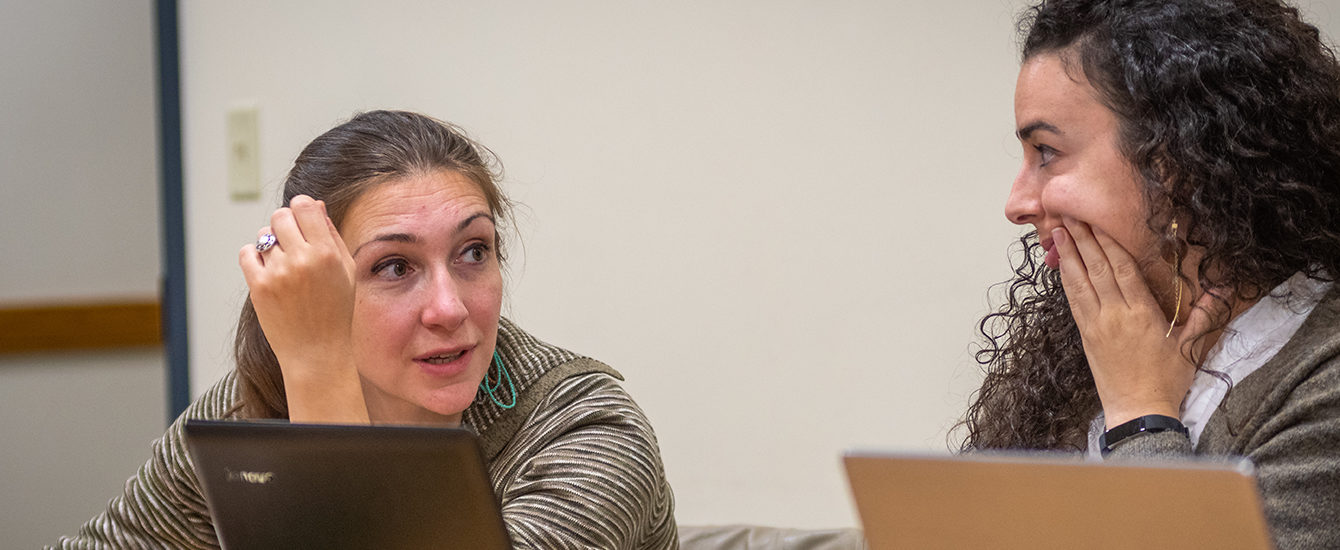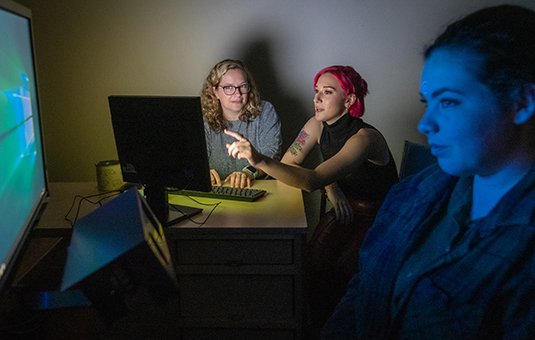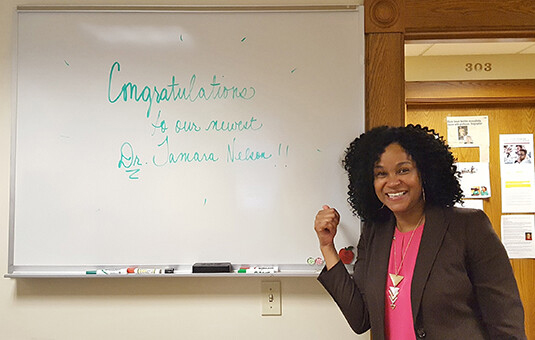Why apply to Clark’s social psychology doctoral program?
Rooted in Clark University’s distinguished history in psychology, the department’s social psychology doctoral program at the nationally-renowned Frances L. Hiatt School of Psychology is dedicated to understanding the psychological processes that underlie today’s most pressing local, national, and global social and political issues.
Our program emphasizes contextualized, interdisciplinary learning and diversity in its research and pedagogy while encouraging novel theoretical work and methodological breadth. Our intimate size allows for close student-faculty relationships and collaboration while providing opportunities to work with and mentor fellow graduate students and undergraduates. Our approach prepares students for academic, research, and policy careers in social psychology.
All full-time graduate students are guaranteed tuition remission and stipends for four years through graduate assistantships. Along with Clark’s pedigree as a small urban research university where G. Stanley Hall, its first president, founded the American Psychological Association in 1892, our close-knit program fosters a collegial, supportive intellectual community.
Our Community
The social psychology program encourages students, through initiative and intellectual curiosity, to develop and advance their research interests in urgent social issues among our dedicated, collaborative community. Many different methodological approaches are represented and valued. Our department intentionally structures classes to allow students to focus on the topics at hand, not competition among peers. The social psychology program is committed to the inclusion of diverse populations and to enhancing diversity within the field as a whole. As such, we create a respectful, supportive learning environment.
Our Research in Social Psychology
From studying the psychology of activism to politically motivated intergroup conflict and violence, Clark’s social psychology graduate students analyze some of the day’s most pertinent issues using quantitative and qualitative research methods. Our graduate program ensures students receive extensive research training that builds cumulatively from foundational and more heavily mentored experiences to more independent activities, like building a research portfolio and dissertation research. Much of our faculty and student research takes place within community settings, locally or internationally.
Through lab work, graduate students collaborate among faculty, their cohorts, and undergraduates. Graduate students present their work at external conferences such as the Society for Personality and Social Psychology, the International Society of Political Psychology, or the Society for the Psychological Study of Social Issues and at Clark’s Graduate Student Multidisciplinary Conference, and publish in journals like Feminism and Psychology, the Journal of Social Issues, and Psychology of Men and Masculinity. Graduate students’ scholarship, along with our faculty’s research, is diverse both in theory and method, which is a mark of distinction and strength across our department’s three programs.
Our faculty has guest-edited special issues in the Journal of Social Issues as well as the European Journal of Social Psychology and founded the Journal of Social and Political Psychology. Their research and expertise have been recognized with funding from the U.S. Centers for Disease Control and Prevention, the American Psychological Association, and the Robert Wood Johnson Foundation, among others.
At the heart of our research are the program and department’s research groups, forums, and lab meetings where faculty, graduate, and undergraduate students discuss common theoretical concerns and research interests. In fact, graduate students are encouraged to work closely with one another, with advanced undergraduate students, and with faculty colleagues in developing their program of research with the goal of growing as an independent researcher.



